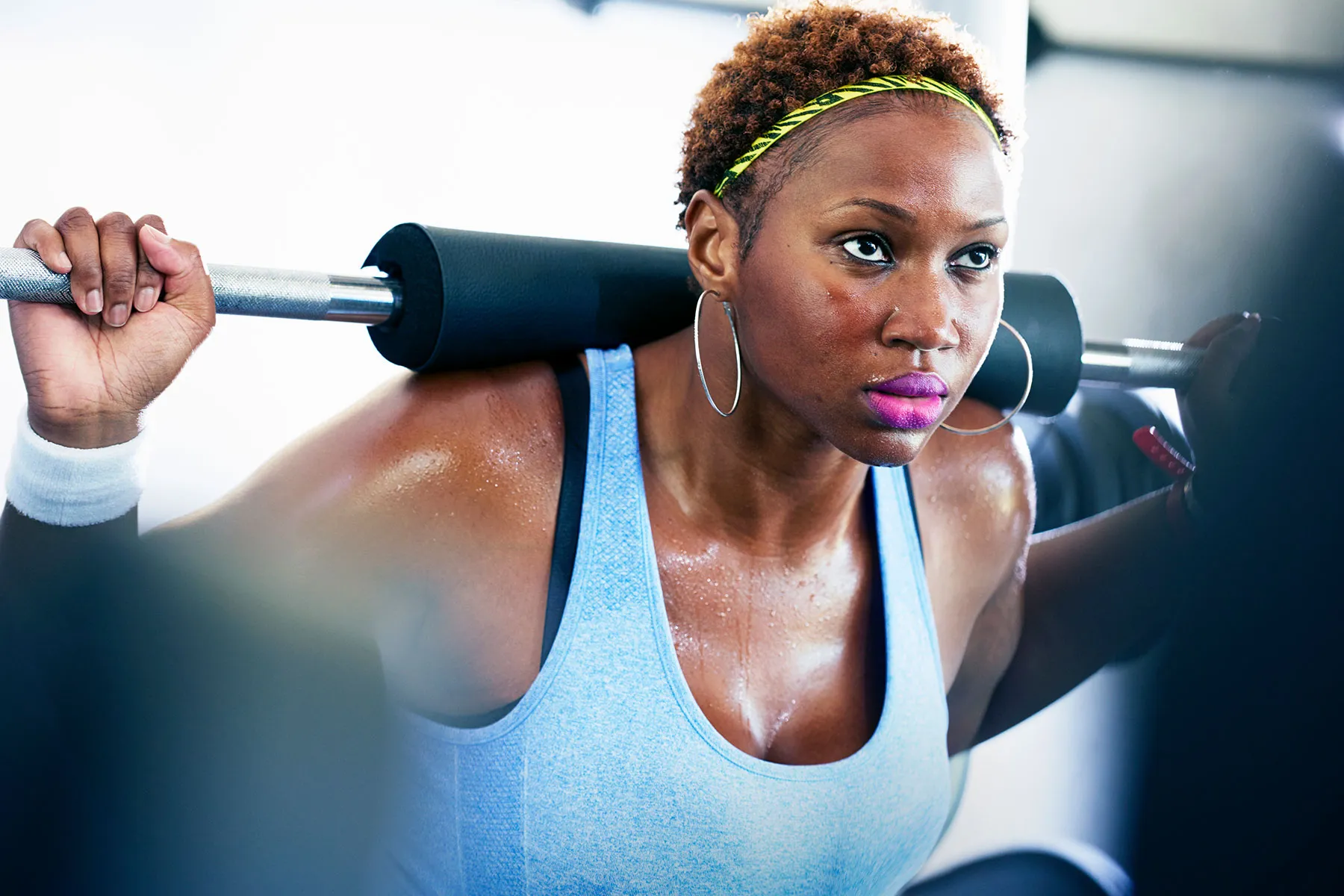
Feb. 28, 2024 – We know that we have to exercise. It boosts our cardiovascular health, strengthens muscles, and ultimately contributes to our longevity and quality of life. But according to new research, women may benefit more from physical activity than men do. Does that mean there should be sex-based guidelines around exercise?
It turns out, when it comes to recommending different exercises based on sex and gender, there isn’t an expert consensus.
Weight training, for example, should be an essential part of anyone’s exercise regimen. But it’s especially important for women to incorporate weight training into their routines, says Phillip Williams, MD, an orthopedic surgeon with Baylor College of Medicine, due in large part to their higher risk of osteoporosis as they approach menopause.
“Weight training improves bone density greater than any other type of exercise,” Williams says. “As an orthopedic surgeon, I definitely encourage any woman who might be at risk for osteoporosis to engage in a good weight training regimen where they’re challenging their muscles regularly.”
The current guidelines published by the U.S. Department of Health and Human Services recommend that weight training – also referred to as resistance training – should be incorporated into everybody’s routine at least twice a week.
There’s no specific amount of time given for muscle-strengthening exercises, but it’s suggested that you do one or two sets of 8-12 repetitions of the same movement. These sets can include bicep curls, deadlifts, bench presses, push-ups, etc.
The new study, published in the Journal of the American College of Cardiology, found that the rates of early death for women who exercise consistently decreased by up to 24%; for men who worked out the same amount, their rates of early death only decreased by 15%.
Though the earlier you start weight training, the better, it’s never too late to start, said Williams. The benefits of weight training, even more so for women, can still happen even if you’re just starting at 60 years old.
Although men don’t see as high of improvement rates in bone density through weight training as women do, Williams said, men with osteoporosis do see significant improvements from it.
Where men may fall short, in Williams’ experience, is in flexibility.
“Men typically suffer from ruptures of tendons from an exercise standpoint from not having enough flexibility, not stretching their tendons and muscles,” said Williams. “You see more ruptures of Achilles tendons, biceps tendons, and things like that in men because of the types of sports they engage in.”
That’s why men of all ages should experiment with exercises that are usually female-dominated – like yoga and Pilates. Male-dominated sports and forms of exercise typically incorporate “explosive movements,” but neglecting the stretching that yoga and Pilates can provide can be detrimental and lead to more muscle strains and ruptured tendons.
Many experts, however, follow the school of thought that all people, regardless of sex and gender identity, should follow the same core exercise routines.
“Everyone should want to hit all pillars of fitness, including strength training, endurance, aerobic exercise, flexibility, and balance,” said David Janke, an American College of Sports Medicine-certified exercise physiologist at the University of California San Francisco’s cardiac rehabilitation center. “That goes for men and women.”
The only difference Janke sees when it comes to sex-based differences in exercise is where men and women tend to hold their weight and muscle mass. Studies have shown that, on average, women tend to have a higher percentage of body fat than men; they also tend to store extra weight in their glutes, whereas men usually store extra fat in their abdominal region.
But even with that knowledge, there isn’t a lot of data to back up the efficacy of what many call “spot training,” or doing certain exercises to target “problem” areas on the body.
Janke has seen the same thing while working with people in recovery after cardiac events.
“Spot training, in my experience, doesn’t seem to benefit people – man or woman – as much as just focusing on doing all your muscle groups,” Janke said. He prescribes the same routines to everyone, no matter their sex or gender.
Strength training tips for women:
- Use your own body weight: push-ups, squats, and lunges are all included under the weight training umbrella.
- If you have free weights, like dumbbells or barbells, you can add in bicep curls, bench presses, deadlifts, and more. You can also add dumbbells to your body weight exercises for an extra challenge.
- Weight machines may seem intimidating at the gym, but they aren’t as scary as they seem – as long as you listen to your body and research proper form. They can help you hit even more targeted muscle groups, with exercises like hamstring curls, chest presses, lateral pulldowns, and more.
Flexibility tips for men:
- Stretching: Making a simple stretching routine a staple of your pre- or post-workout regimen can be a game changer in helping you avoid injuries.
- Yoga has it all when it comes to stretching, and you don’t need to pay for expensive classes, either. With online classes and YouTube tutorials, adding in weekly doses of yoga can provide the necessary amount of stretching you might be missing from your fitness routine.
- Pilates: Much like weight machines in the gym, Pilates reformers can be intimidating at first. But you don’t have to start on the reformer; you can build up to that after practicing floor exercises on a mat. If you are able to get on a reformer, however, classes are the best option for fully understanding what the machine can do for your flexibility potential.






